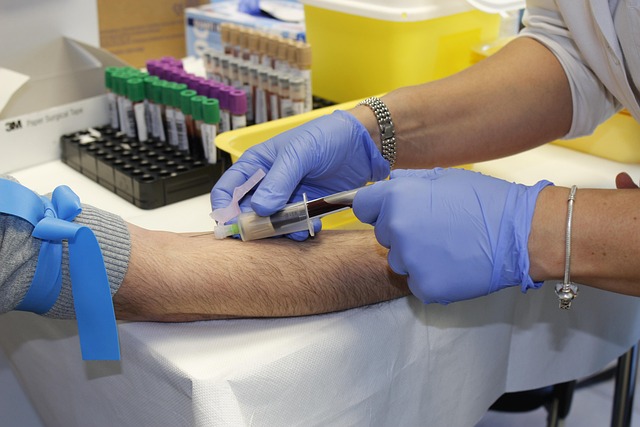Preventive healthcare is one of the most powerful tools in maintaining long-term health. By focusing on early detection and proactive care, individuals can significantly reduce their risk of serious illnesses and improve their overall quality of life. While it’s easy to focus on treating diseases after they occur, preventive healthcare is about staying one step ahead, identifying potential health issues before they become critical.
In this blog post, we’ll explore the significance of preventive healthcare, how early detection can save lives, and how adopting regular screenings and healthy habits can help you live a longer, healthier life.
What Is Preventive Healthcare?
Preventive healthcare focuses on measures that help prevent diseases or identify them in their early stages when they are most treatable. Unlike reactive healthcare, which addresses diseases after they’ve developed, preventive care aims to reduce the risk of health issues and maintain optimal well-being.
-
Examples of preventive healthcare include vaccinations, regular health screenings, adopting a healthy diet and exercise routine, and managing stress effectively.
The Importance of Early Detection
1. Catching Diseases Early
The earlier a disease is detected, the more treatment options are available, and the higher the chances of successful outcomes. Many serious conditions, such as cancer, diabetes, and heart disease, can develop without obvious symptoms in their early stages. By the time symptoms appear, the condition may already be advanced, making treatment more difficult.
-
Example Breast cancer can often be treated more effectively when detected early through regular mammograms and self-exams. When detected in its early stages, the five-year survival rate for breast cancer is significantly higher than when detected later.
2. Improved Treatment Options
Early detection means that doctors can intervene before the disease spreads or worsens. Many chronic conditions, such as hypertension (high blood pressure) or diabetes, can be managed effectively with lifestyle changes, medications, and other treatments when diagnosed early.
-
Example Diabetes can be managed with medication and diet if caught in its early stages, preventing long-term complications such as heart disease, kidney failure, and nerve damage.
3. Reducing Healthcare Costs
Catching diseases early can significantly reduce healthcare costs by avoiding expensive treatments that are required when conditions are left undiagnosed and untreated. Preventive healthcare can save both patients and healthcare systems substantial amounts of money in the long run.
-
Fact A study by the Centers for Disease Control and Prevention (CDC) found that preventive health services could save the U.S. healthcare system billions of dollars annually by reducing the need for emergency care, hospitalizations, and long-term treatments.
Preventive Healthcare Strategies for Early Detection
1. Regular Health Screenings and Check-ups
Regular screenings are key in identifying health problems in their early stages. Common screenings include blood pressure checks, cholesterol tests, cancer screenings, and diabetes tests. These exams help detect abnormalities before they become major health concerns.
-
Recommended Screenings
-
Blood pressure checks (annually or as recommended by your doctor)
-
Cholesterol levels (starting at age 20 and regularly after that)
-
Cancer screenings, including mammograms, pap smears, and colonoscopies (based on age and risk factors)
-
Blood sugar testing to detect early signs of diabetes
-
2. Vaccinations and Immunizations
Vaccines are a critical preventive measure that helps protect against diseases like the flu, measles, hepatitis, and HPV (human papillomavirus). Vaccination prevents the spread of infectious diseases and supports long-term health by lowering the risk of complications.
-
Important Vaccines
-
Flu vaccine (annually for most people)
-
HPV vaccine (recommended for both boys and girls at age 11 or 12)
-
Hepatitis B and C vaccines
-
Tetanus and diphtheria vaccines (every 10 years)
-
3. Adopting a Healthy Lifestyle
Preventive healthcare also involves lifestyle changes that reduce the risk of chronic diseases. Eating a balanced diet, exercising regularly, maintaining a healthy weight, managing stress, and avoiding smoking and excessive alcohol consumption are all key components of disease prevention.
-
Healthy Habits
-
Eat a balanced diet rich in fruits, vegetables, whole grains, and lean proteins
-
Exercise regularly (at least 150 minutes of moderate activity per week)
-
Maintain a healthy weight to reduce the risk of diabetes, heart disease, and certain cancers
-
Practice stress management techniques such as yoga, meditation, or mindfulness
-
Avoid smoking and limit alcohol intake to reduce the risk of cancer, lung disease, and liver damage
-
4. Mental Health Check-ups
Mental health is just as important as physical health. Early detection of mental health conditions like depression, anxiety, and bipolar disorder can lead to more effective treatments, including therapy and medications that can improve quality of life.
-
Signs to Watch For
-
Persistent feelings of sadness or hopelessness
-
Excessive worry or panic attacks
-
Changes in sleep patterns or appetite
-
Difficulty concentrating or making decisions
-
The Role of Technology in Preventive Healthcare
Advancements in health technology have made it easier to monitor health indicators and detect potential problems before they escalate. Devices like wearable fitness trackers, smartwatches, and mobile health apps allow individuals to track metrics like heart rate, activity levels, sleep patterns, and even blood oxygen levels in real-time.
-
Example Wearable devices like the Apple Watch can alert users to irregular heartbeats, which may be a sign of atrial fibrillation or other heart conditions, prompting early medical intervention.
Preventive healthcare and early detection are essential components of maintaining good health and preventing the onset of serious diseases. By committing to regular check-ups, health screenings, vaccinations, and adopting a healthy lifestyle, you can significantly reduce your risk of chronic illnesses and improve your overall well-being. Remember, prevention is always better than cure—early intervention can save lives, reduce healthcare costs, and enhance quality of life.
Take charge of your health today by making preventive care a priority. Your future self will thank you for it.


